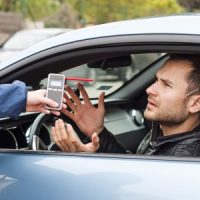What Could Throw Off the Results of a Breathalyzer?

As outlined below, many deficiencies could throw off the results of a Breathalyzer. This gadget is simply an updated version of the 1920s Drunk-O-Meter. The same flaws that plagued this device, which was invented more than a century ago, plague modern Breathalyzers. Additionally, with all their bells and whistles, modern Breathalyzers often have additional flaws.
Challenging Breathalyzer results is essential for a Leesburg criminal defense lawyer. The conviction rate in test cases is far higher than the conviction rate in non-test cases. If a lawyer undermines the test results, prosecutors must rely on weak circumstantial evidence of intoxication, greatly increasing the chances of a favorable outcome.
Blood/Breath Ratio
Breath testing devices operate under the presumption that everyone has the exact same blood/breath ratio, and that this ratio never changes. The scientific presumption is that the concentration of alcohol in a person’s blood is 2,100 times greater than the concentration of alcohol in the person’s breath. Therefore, Breathalyzers presume that the amount of alcohol that is present in 2,100 milliliters of a person’s deep lung (alveolar) air is the same as the amount of alcohol that is present in 1 milliliter of the person’s blood. The machine uses this mathematical formula to convert a BrAC into a BAC.
At trial, Breathalyzer technicians generally concede that they were trained regarding the information in the preceding paragraph, and that they were also trained that the blood/breath ratio varies among different people, at different times, and different body temperatures. Since the police do not test a DUI suspect’s actual blood/breath ratio, the BAC reported by a breath test device is really more of an estimate than a precise measurement.
Mouth Alcohol
A breath test result is only reliable if the breath being tested is “deep lung” or “alveolar” air. The amount of alcohol in alveolar air most closely approximates the amount of alcohol in the blood. It is captured by having the person blow into the machine for a period of time sufficient to exhaust the air in the person’s lungs.
If the breath sample contains alcohol from a source other than the suspect’s alveolar air (e.g. alcohol brought up from the stomach by a burp), the breath sample is contaminated, and the test result is artificially high. Virginia law requires officers to monitor defendants for at least fifteen minutes before the test, to reduce the risk of mouth alcohol contamination. But this observation period is sporadically enforced, at best.
To further reduce this risk, Breathalyzers have slope detectors. These computer algorithms supposedly detect mouth alcohol and abort contaminated tests. However, most Breathalyzer techs are not sufficiently trained in the operation of the slope detector to testify competently, or persuasively, about it in court.
Radio Frequency Interference
RFI disrupts Breathalyzer functions. RFI is especially a factor in larger Breathalyzers in police stations, which prosecutors assert are more accurate than portable Breathalyzers. Nonetheless, many police agencies do little or no testing for RFI. Furthermore, as outlined above, a Leesburg criminal defense lawyer often successfully cross-examines Breathalyzer techs on this issue.
Improper Calibration
This Breathalyzer flaw may be the biggest one. Pretrial discovery often reveals that the law enforcement department:
- Didn’t have its Breathalyzers calibrated in a timely manner,
- Failed to perform required weekly simulator tests,
- Didn’t follow departmental rules and regulations pertaining to breath testing, and/or
- Failed to repair the device when anomalous results are obtained.
While not every such failure is significant, one or more of these lapses can create doubt in jurors’ minds as to whether the device malfunctioned.
Work With a Dedicated Loudoun County Lawyer
There’s a big difference between an arrest and a conviction in criminal law. For a confidential consultation with an experienced criminal defense attorney in Leesburg, contact Simms Showers, LLP, Attorneys at Law. The sooner you reach out to us, the sooner we start working for you.
